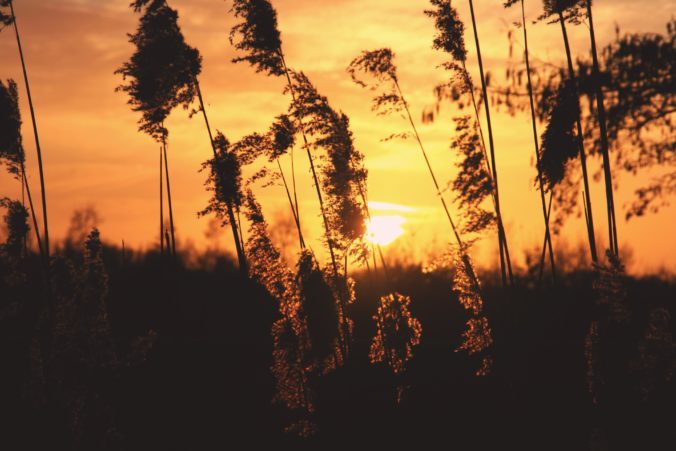December 21. The eve of the solstice. A local celestial event that bathes earth in different hues of light, with peculiar views of the sun, no matter where you are on the planet.
As the tilt of northern pole, reaches its furthest extremity with respect to the earth’s annual pilgrimage around the sun, the Northern hemisphere, curled up in the windy winter, witnesses the shortest day of the year. At the same time, the south pole, leans closest to the sun, as the southern hemisphere saunters in summery delight, witnessing the longest day of the year, just a few days before a Christmas celebrated sans the celebratory snowfall.
And the closer you are to the poles, the more fascinating the spectacle. Beyond the Arctic Circle, the sun wouldn’t hover even for a moment in the sky, drenching the area in darkness, while within the Antarctic Circle, the sun would efface the night, as it suspends in the sky all through the 24 hours that make a day.
The gentle tilt of the earth gives us so much to celebrate – the gift of seasons, the trade winds, a breath-taking biodiversity and of course, seemingly unearthly events of solstices.
While a solstice is a fascinating earthly phenomenon that marks the extremes of the duration of daylight, the human conception of a day, its length and the value derived from it is rarely synchronous to the event. There are cultural and psychological influences at play that dictate our relationship with the duration and depth of what we now understand as a day.
In the sweep of advancing technology, our species has successfully conquered darkness with illumination. Culturally, we’ve moved beyond the local solar day, thanks to household electrification. Being a flick of a switch away from illumination past sundown, our days have become longer for sure.
However, as far as we have come from being dictated by nature beyond us, we are still tethered to our own human nature. On a psychological level, each human perceives the length of a day differently. It’s an experience as personal as a dream that nobody else is privy to. A day spent in good company or spent being meaningfully engaged, breezes past elegantly. But a day spend without purpose slithers painfully, adding undesired friction in our stride.
Evidently, a ‘long day’ at work is a phrase that’s being used far too often in our cultural parlance, part due to the wear-out, part in lament of a day divested of depth. Gone are the times when daylight was celebrated as an incantation for living life outdoors in the field and the nights were a hymn that decreed us to rest peacefully.
Most of us have lost the privilege of retiring from work as the sun retreats beyond the horizon. Global connectivity and economic metrics can dictate us to work as the sun rises and sets in a more prosperous part of the world, time zones apart.
Our days have come far beyond the solar day. Incandescence has bled into our earthly night as we forget the value of the most natural de-markers of dusk from dawn.
And along with that, we’ve lost the romance for the spirited rise of the sun. We have a hard time recollecting the last instance when we watched the parting winter sun paint splendid hues in the sky, with a dazzling Venus in its tow. Perhaps the further away we are from such natural invitations for contemplation, the more unsettled we become deep inside.
We live in a funny era, where after unsettling elegantly designed natural equilibria, we run around like chickens to find balance in life!
The workdays are becoming longer, so are the commutes, and sleep is drifting further away from being a continuum of placid repose.
The best thing about a good night’s sleep, just like a good day’s work, is how you only remember the beginning and the end, while all the magic that happens in between is effortless as a flamboyant stroke on the canvas by a painter in flow. A good day at work and a good night of sleep are precursors (and pre-requisites) of each other, in our daily cyclic dance. And more than duration, what matters most in either engagements, is depth.
Nowhere else is this profundity of engagement better exhibited during childhood days. The presence in each moment of wakefulness, in each moment at play is at its zenith. And the hours of sleep are as deep as they can be, in preparation for another day full of joy and zeal.
Perhaps what we need more than longevity in life, is the elegant passage of time, both in sleep and in wakefulness. And, as time passes elegantly, the notions of length of the day would matter little, for what would matter more is the completeness in our involvement in all states of our consciousness.
Then shall we find a balance, not a perennial solstice in our workdays where the days are always long, but an equinox, with profound presence throughout, both in sleep and in wakefulness, regardless of the position of the sun in the sky, regardless of the state of our consciousness.
Today is the shortest day of the year. Perhaps, for a change, it would be nice to give up control of the luminosity around us, and watch the sun paint a silhouette in the far horizon. If we choose to do so, the Venus shall burn brighter, in its retreat into the afterglow. While the length of the day today on 21 December, might be the shortest this year, the presence in the moment, as we pore the sky in wonder, shall be a worthy consolation.

Leave a Reply